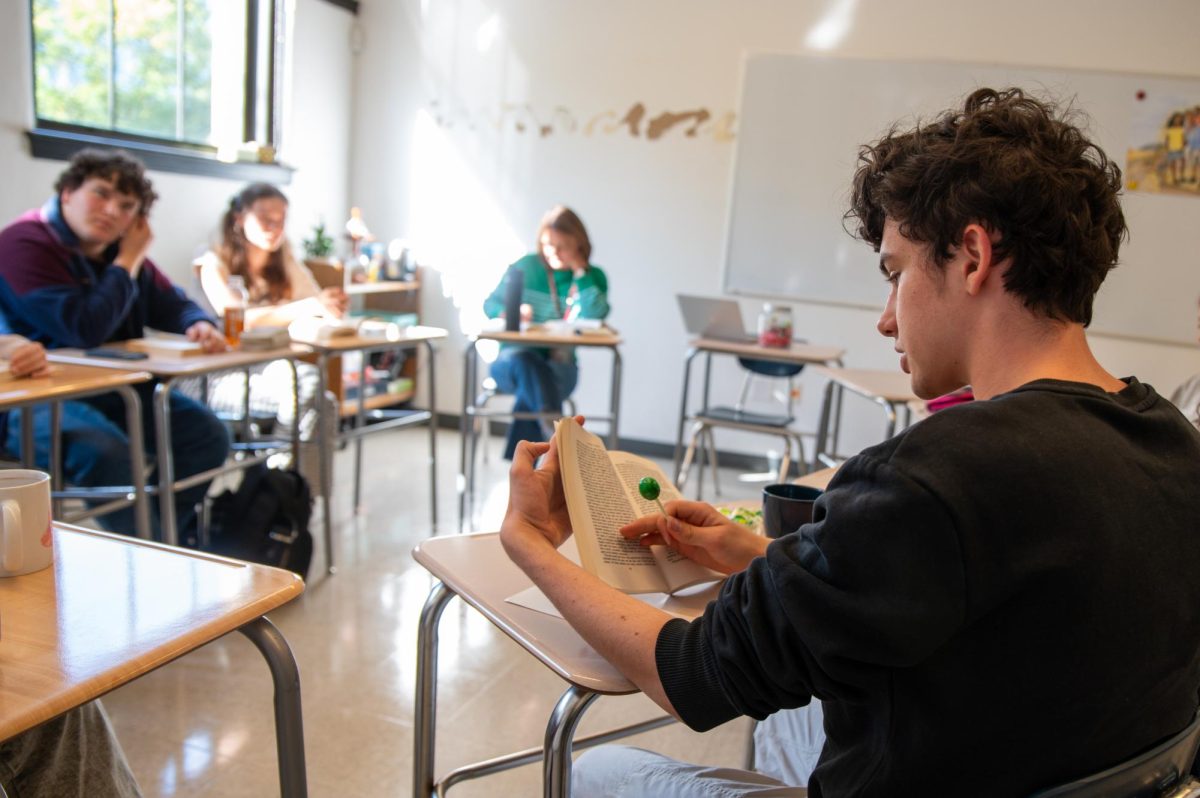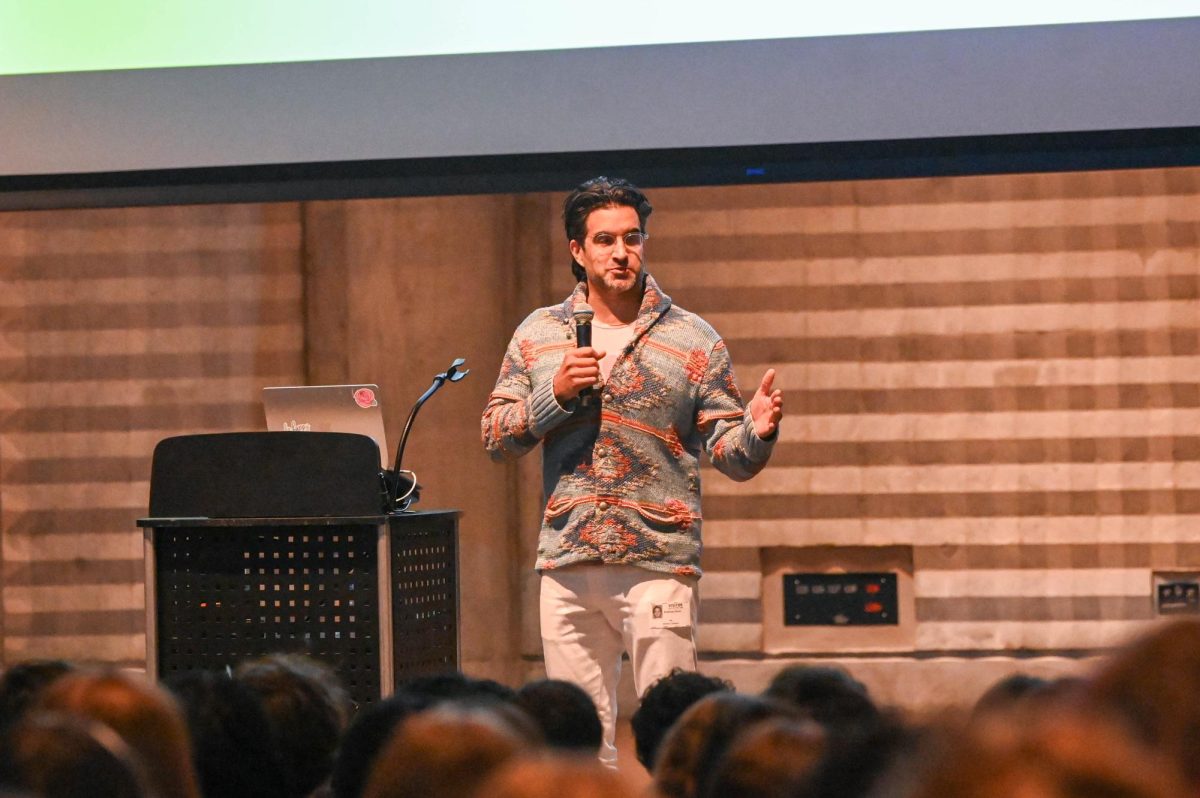On a recent Wednesday afternoon, in a tight circle of desks, eight students and a teacher are having a lively discussion about the theme of desire in their book. It’s a relaxed setting in N-204 with hot tea being passed around, where students build off each other’s ideas and discuss the novel in an unstructured manner with the teacher rarely interjecting to redirect the conversation.
The English department has introduced this opportunity for students who want to take a more challenging English course.
English Seminar is a new elective geared toward students who are prepared to read and discuss more challenging texts than offered in the traditional English curriculum. The semester- or year-long seminar meets during Labs B and D and does not count toward the English graduation requirement.
The goals of English Seminar are to help students develop the skills to read longer texts in preparation for college-level seminars, such as critical thinking, analysis and discussion.
“The goal is really, as we said, to create a community for humanities kids to shine,” said Rachel Nielsen, who is teaching the class this year, “and to feel like the very important abilities and skills that you develop as a humanities student — in terms of critical thinking, empathy, deep focus and the breadth and depth of your knowledge — are really valued in our in our Lab community.”
The elective differs from a typical English course because it is almost entirely student-led and focuses less on specific activities to build skills but rather enhancing critical reading skills through discussion.
In English Seminar, students also have the opportunity to do an independent project that focuses on something that they are passionate about, such as creative writing or researching a specific topic.
Junior Adam Tapper is choosing to embrace the creative writing side of the course.
“I was kind of looking for a space where I could not only do more with English but also have an ability to do more creative stuff,” Adam said, “because the standard English classes focus on analytical writing and building those skills, and have left creative writing to the side.”
Students have appreciated the less-structured form of the class because it allows them to shape the discussion themselves rather than a teacher leading it.
“It’s kind of a small-group discussion that’s open, and you can choose to explore any themes you want,” Adam said. “Whereas typical English classes tend to be pretty structured, this class is really free form and kind of takes whatever shape the people in it form.”
The elective’s theme this year is Chicago, so students have been reading short stories about Chicago and have begun the novel “Sister Carrie” by Theodore Dreiser about a young girl who moves to Chicago and grapples with the American Dream.
As different English teachers teach the elective each year, the theme and overall structure will shift based on what the teacher wants, but the course will continue to prioritize humanities students and the important skills they develop.
“I believe reading is an important thing,” Ms. Nielsen said. “We wanted to kind of create a space and a community around that.”
In a tight circle of desks students gather every Wednesday afternoon to share their reactions and thoughts on the previous night’s reading. Laughter fills the space as a student shares their strong dislike for the main character, contributing to the relaxed and welcoming atmosphere of the class.





















































